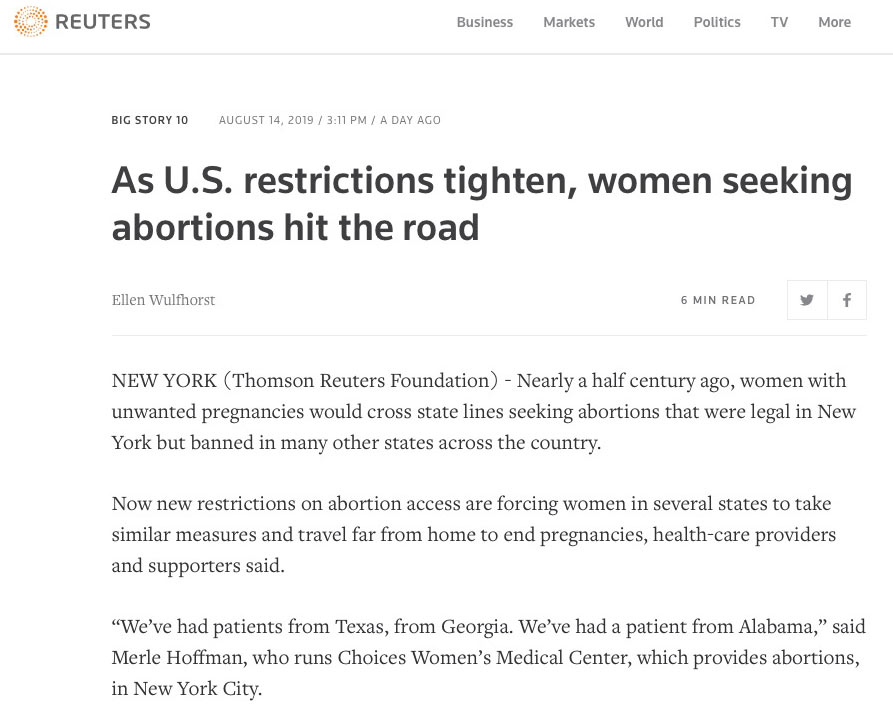
As U.S. restrictions tighten, women seeking abortions hit the road
By Ellen Wulfhorst | August 14, 2019 – NEW YORK (Thomson Reuters Foundation) – Nearly a half century ago, women with unwanted pregnancies would cross state lines seeking abortions that were legal in New York but banned in many other states across the country.
Now new restrictions on abortion access are forcing women in several states to take similar measures and travel far from home to end pregnancies, health-care providers and supporters said.
“We’ve had patients from Texas, from Georgia. We’ve had a patient from Alabama,” said Merle Hoffman, who runs Choices Women’s Medical Center, which provides abortions, in New York City.
“Definitely it’s picked up in the last few months,” she told the Thomson Reuters Foundation.
Nine of the 50 U.S. states this year passed legislation restricting abortion. Among the strictest were bans on abortion after a fetal heartbeat is detected, which can occur at six weeks, even before a woman realizes she is pregnant.
Most of the new laws are facing legal challenges before they take effect.
The 1973 U.S. Supreme Court Roe v. Wade decision guarantees the right to abortion, but many states have added complications such as mandatory waiting periods, multiple visits or requiring pregnant women to view fetal ultrasound images.
Women facing such restrictions are turning to linked networks of abortion rights supporters to help them travel for access to health care, advocates said.
The informal networks have been dubbed an ‘Overground Railroad,’ referencing the 19th-century Underground Railroad of abolitionists who shuttled slaves out of the American South.
Some grassroots networks provide funds while others offer women transportation or a place to stay, said Elizabeth Nash, senior state issues manager at the Guttmacher Institute, a research group that supports abortion rights.
It’s a way for abortion rights supporters to step up “when they see their lawmakers falling down on the job,” Nash said, adding, “I don’t see it slowing.”